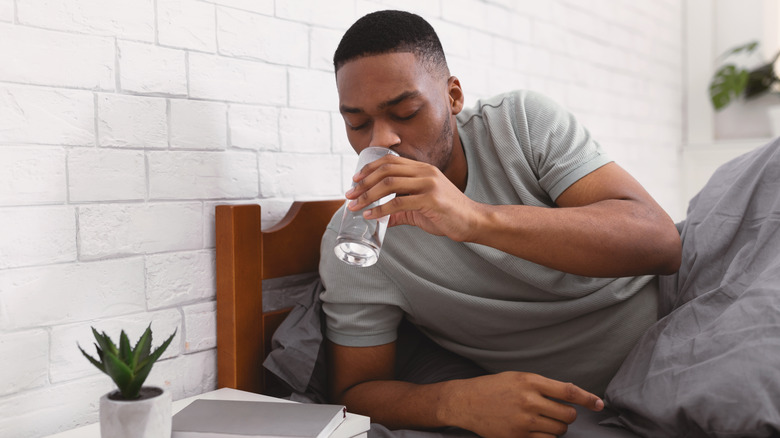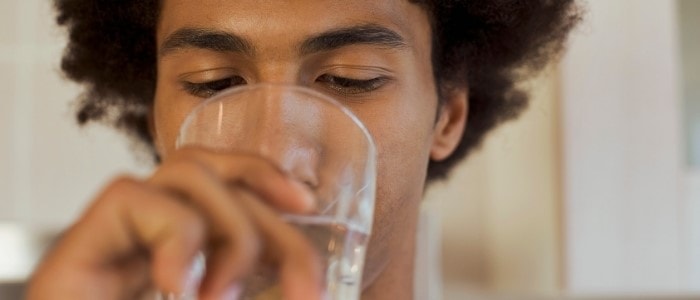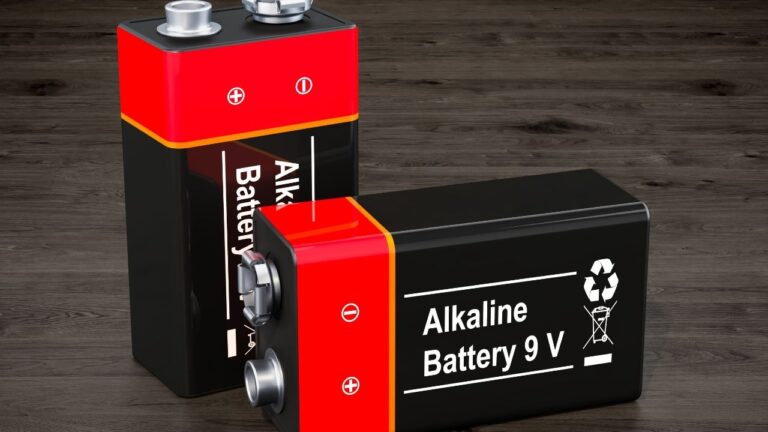Why Does Water Taste Better at Night?
Here are the most common reasons for the water tasting better at night,
- Water may taste better at night due to the calming effect of reduced sensory distractions.
- The dimly lit environment of the night can make other senses more pronounced, enhancing water’s taste.
- Hydration levels can influence water’s perception; nighttime thirst can intensify the taste.
- Circadian rhythms affect thirst and may contribute to heightened water taste at night.
- Meal choices like spicy or salty foods can contrast with water’s neutrality, making it seem more refreshing.
- The psychological aspects of relaxation and mindfulness during the night can enhance the perception of water’s taste.
The Subjectivity of Water Taste

The perception of taste is a remarkably subjective and multifaceted phenomenon influenced by various factors. Water’s taste, or the perception of its taste, is no exception to this subjectivity.
Here are some key factors that demonstrate the subjective nature of taste:
Individual Variability: Each person’s taste buds and olfactory receptors are unique, leading to variations in taste perception.
What one person finds refreshing, another may perceive as bland or even unpleasant. Genetic factors can influence this subjectivity, leading to different sensitivity to taste compounds.
Cultural Influences: Cultural backgrounds play a significant role in taste preferences. The flavors and foods we grow up with can strongly influence our taste perceptions.
For example, people from different cultures may prefer sweetness, spiciness, or saltiness.
Psychological Factors: Our mood and emotions can influence how we perceive taste.
When you’re relaxed and at ease, as often happens during the calm of the night, you might be more attuned to subtleties in flavor. Conversely, stress or negative emotions can dull the sense of taste.
Environmental Factors: Environmental conditions can affect how we perceive taste. The temperature of the water, the quality of the glass or container, and even the ambient lighting can impact our taste experience.
Hydration Level: Our perception of the taste of water can also be influenced by how well-hydrated we are. When dehydrated, water can taste more refreshing, whereas when fully hydrated, it may seem less flavorful.
Time of Day: This is where the intriguing connection to the topic of water tasting better at night comes into play. Our bodies have circadian rhythms that regulate various physiological functions, including taste perception.
These rhythms can indeed influence our sensitivity to taste, with some studies suggesting that taste perception may be heightened at certain times, such as during the evening.
Hydration Levels and Nighttime Cravings:
Throughout the day, especially during activities, our bodies can lose fluids through various processes like sweating, urination, and respiration. This ongoing loss of fluids can lead to dehydration if we don’t consistently replenish our water levels.
Dehydration during the Day
As we engage in daily activities, we often forget to drink enough water to maintain proper hydration. Dehydration can result in an increased sensation of thirst and a heightened need for water.
Heightened Perception of Water’s Taste at Night
When we finally have a moment to rest and quench our thirst at night, the heightened state of dehydration can influence our perception of the taste of water.
Dehydrated individuals tend to be more sensitive to changes in their hydration status, making water taste more satisfying and refreshing when they do drink it.
Circadian Rhythms and Water Perception
Circadian rhythms, our body’s internal biological clocks, also play a crucial role in regulating thirst and hydration. These rhythms influence our physiology, including our perception of thirst and the body’s hydration needs.
Circadian Thirst Regulation
Our circadian rhythms can influence the sensation of thirst and the body’s response to it. Thirst tends to be less pronounced during nighttime, which may be related to the body’s natural tendency to conserve water during rest and sleep.
Nocturnal Sensitivity
As our circadian rhythms reach their nighttime phases, the body may become more sensitive to subtle changes, including fluctuations in hydration levels.
This increased sensitivity can make water taste more refreshing and enjoyable, even when you are not feeling excessively thirsty.
Meal Timing and Water Taste:
The timing of dinner choices and the specific foods consumed can influence how water is perceived at night:
Spicy or Salty Foods: Your taste buds and palate may become more sensitive if you consume a spicy or salty dinner. Spices and salt can leave a lingering sensation that makes water taste even more refreshing and helps soothe any lingering heat or saltiness.
This heightened perception of water’s taste at night can be partially attributed to the contrast between the flavors of the meal and the pure, neutral nature of water.
Meal Timing and Thirst: The time gap between dinner and bedtime can influence your thirst levels. If you have dinner earlier in the evening, you might develop some degree of thirst by bedtime.
When you finally quench that thirst with water, it can be perceived as particularly satisfying due to the contrast between the dryness in your mouth and the refreshing nature of water.
Dim Lighting and Enhanced Taste:
The impact of dim lighting on taste perception is a fascinating phenomenon:
Reduced Visual Distractions: There are fewer visual distractions in dimly lit environments. As a result, your focus on the sensory experience of drinking water can be intensified.
The absence of vivid colors or busy surroundings allows you to concentrate more on the sensory elements of the water, such as its coolness and texture.
Sensory Amplification: When visual distractions are minimized, other senses, including taste and touch, can become more pronounced.
Your perception of the temperature and texture of water may be heightened, leading to the sense that water tastes better. In the subdued light, these subtle sensory qualities are more noticeable.
Calming Atmosphere: Dim lighting often creates a tranquil and calming atmosphere, enhancing the overall experience of drinking water.
The psychological state of relaxation can further influence your perception of water’s taste, making it seem more enjoyable.
Personal Experiences and Opinions on Water Taste at Day and Night

Here are a few personal stories and testimonials from individuals who have noticed a difference in water taste at night:
1. Sarah, a Student: “During my late-night study sessions, I often reach for a glass of water. There’s something about the calm and stillness of the night that makes the water feel extra refreshing. It’s like a little reward for making it through the day.”
2. Alex, a Night Owl: “I work the night shift and am always thirsty when I get home in the early hours. The first sip of water is like a burst of life, especially after a long shift. It’s a simple pleasure that makes the night shift more bearable.”
3. Emily, a Mother: “After putting the kids to bed, I finally have a moment of peace. I sit in the dimly lit kitchen, and the first sip of water is like a tiny luxury. It’s my quiet time, and the water tastes better because of it.”
4. James, a Fitness Enthusiast: “I usually work out in the evenings, and when I come home, I’m exhausted and thirsty. The water I drink after a workout feels incredibly refreshing. It’s like a natural reward for staying active.”
5. Maria, a Chef: “As a chef, I’m always experimenting with flavors and ingredients. After a long day in the kitchen, a glass of water at night is a moment of simplicity and purity. It feels like the perfect ending to a day filled with tastes and aromas.
Practical Tips:
To make the most of your water consumption and enhance your sensory experiences:
Stay Hydrated Throughout the Day: Consistently drink water during the day to maintain good hydration levels. Proper hydration can make your evening water experience even more satisfying.
Choose Balanced Dinners: Opt for balanced, less spicy, and less salty dinners if you’re looking to enhance your late-night water experience. This can help you appreciate the refreshing qualities of water even more.
Mindful Sipping: Take your time to savor the experience of drinking water, whether it’s at night or during the day. Mindful sipping can enhance your overall perception of water’s taste.
Create a Relaxing Environment: Whether it’s by dimming the lights, playing calming music, or sitting in a serene setting, create an environment that encourages relaxation and mindfulness during your water-drinking moments.
Enjoy Your Hydration Ritual: Make hydration a ritual, and embrace the quiet moments when you savor water. These moments of tranquility can make the experience more pleasurable.
Remember that the taste of water, like all sensory experiences, is a personal journey.
Embrace and enjoy these simple yet profound moments when water becomes more than just a beverage—it becomes a source of comfort, refreshment, and a subtle delight, especially at night.
FAQs
Does the taste of water change at night compared to during the day?
No, the taste of water doesn’t change at night compared to during the day.
Can lower nighttime temperatures affect how water tastes?
Yes, lower nighttime temperatures can affect how water tastes. Cold water, typically around 40°F (4.4°C) or lower, can enhance the perception of freshness and crispness, making it more enjoyable for many individuals.
However, the exact numerical impact on taste can vary from person to person.
Does reduced ambient noise at night influence the taste of water?
Yes, reduced ambient noise at night can influence the taste of water for some individuals. A quieter environment can lead to heightened sensory perception, making water taste more noticeable and potentially enhancing the overall experience.
Is it purely a psychological effect that makes water taste better at night?
Yes, a purely psychological effect plays a significant role in taste perception.
Can nighttime dehydration during the day make water taste better at night?
Yes, dehydration during the day may intensify the need for water at night, affecting taste perception.
Does meal timing have a role in how water tastes at night?
Yes, the flavors of a dinner meal can influence how water tastes afterward.
Is the lack of daytime distractions a factor in the perception of better-tasting water at night?
Yes, reduced distractions can lead to a more focused and satisfying drinking experience.
Can dim lighting in the evening enhance the perception of taste in water?
Yes, subdued lighting may accentuate other senses, contributing to the perception of better-tasting water.
Do circadian rhythms impact the way water tastes at night?
Yes, circadian rhythms can impact the way water tastes at night.
Can a clean glass or a freshwater source make water taste better at night?
Yes, clean glass and a freshwater source can contribute to water tasting better at night.
The absence of contaminants or residual flavors in the glass and the use of clean, pure water can enhance the overall perception of water’s taste, especially in a quieter nighttime setting.
Conclusion
In conclusion, several factors can influence how water tastes at night. Reduced ambient noise, lower nighttime temperatures, the use of clean glass, and freshwater sources can collectively contribute to an enhanced perception of water’s taste during the quiet hours of the night.
While these factors may vary in their impact, they combine to create a unique sensory experience that many find more satisfying and refreshing.
The taste of water can vary from person to person, and the nighttime environment can influence it.







